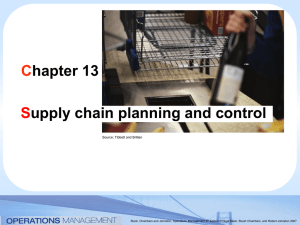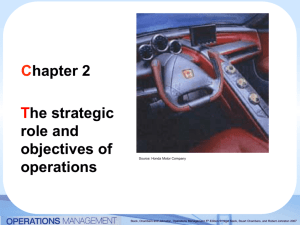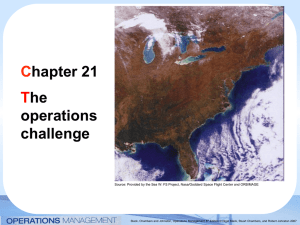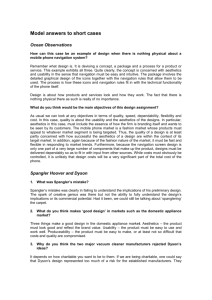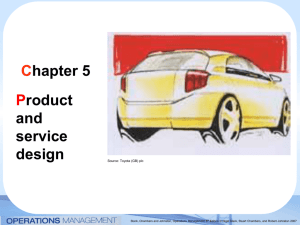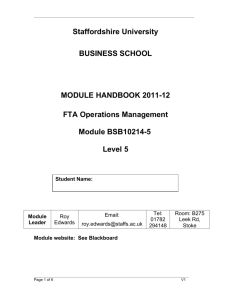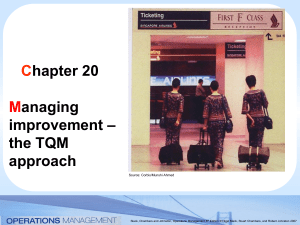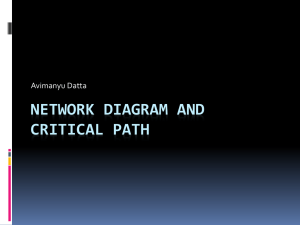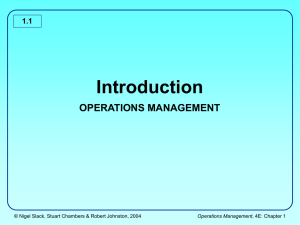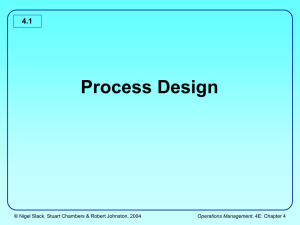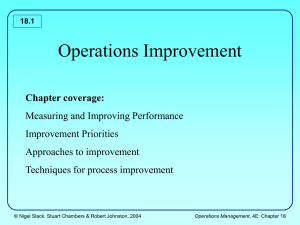Chapter 3 Powerpoint slides
advertisement
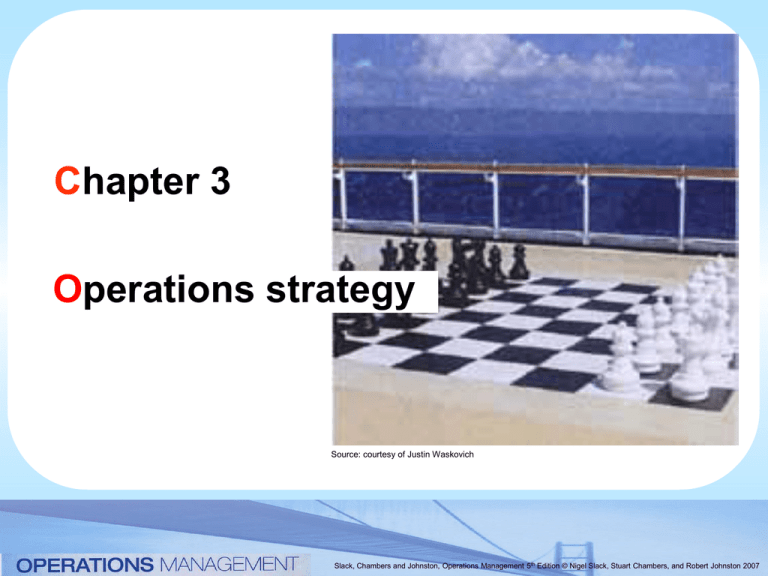
Chapter 3 Operations strategy Source: courtesy of Justin Waskovich Slack, Chambers and Johnston, Operations Management 5th Edition © Nigel Slack, Stuart Chambers, and Robert Johnston 2007 Levels of Decisions in Operations Decision Strategic Tactical Operational Level of Management Timescale Risk Detail Structure Focus Slack, Chambers and Johnston, Operations Management 5th Edition © Nigel Slack, Stuart Chambers, and Robert Johnston 2007 What is strategy? Strategic decisions – means those decisions which … Are widespread in their effect on the organization to which the strategy refers Define the position of the organization relative to its environment Move the organization closer to its long-term goals. Slack, Chambers and Johnston, Operations Management 5th Edition © Nigel Slack, Stuart Chambers, and Robert Johnston 2007 ‘Operations’ is not the same as ‘operational’ ‘Operations’ are the resources that create products and services ‘Operational’ is the opposite of strategic, meaning day-today and detailed So, one can examine both the operational and the strategic aspects of operations Slack, Chambers and Johnston, Operations Management 5th Edition © Nigel Slack, Stuart Chambers, and Robert Johnston 2007 The strategy hierarchy Key strategic decisions Influences on decision making Corporate strategy What business to be in? What to acquire? What to divest? How to allocate cash? Economic environment Social environment Political environment Company values and ethics Business strategy What is the mission? What are the strategic objectives of the firm? How to compete? Customer/market dynamics Competitor activity Core technology dynamics Financial constraints Functional strategy How to contribute to the strategic objectives? How to manage the function’s resources? Skills of function’s staff Current technology Recent performance of the function Slack, Chambers and Johnston, Operations Management 5th Edition © Nigel Slack, Stuart Chambers, and Robert Johnston 2007 Sales volume The effects of the product/service life cycle on the organisation Introduction Volume Slow growth in sales Customers Innovators Competitors Few or none Variety of product / service design Possible high customisation or frequent design changes Growth Maturity Decline Rapid growth in sales volume Sales slow down and level off Market needs largely met Early adopters Bulk of market Laggards Increasing numbers Stable number Declining numbers Increasingly standardised Emerging dominant types Possible move to commodity standardisation Slack, Chambers and Johnston, Operations Management 5th Edition © Nigel Slack, Stuart Chambers, and Robert Johnston 2007 Sales volume The effects of the product/service life cycle on the organization Introduction Likely order Product/service winners characteristics, performance or novelty Likely Quality qualifiers Range Dominant Flexibility operations Quality performance objectives Growth Maturity Decline Availability of quality products/services Low price Dependable supply Low price Price Range Quality Range Dependable supply Speed Dependability Quality Cost Dependability Cost Slack, Chambers and Johnston, Operations Management 5th Edition © Nigel Slack, Stuart Chambers, and Robert Johnston 2007 Different competitive factors imply different performance objectives Competitive factors If the customers value these ... Performance objectives Then, the operations will need to excel at these ... Low price Cost High quality Quality Fast delivery Speed Reliable delivery Dependability Innovative products and services Flexibility (products and services) Wide range of products and services Flexibility (mix) Ability to change the timing or quantity of products and services Flexibility (volume and/or delivery) Slack, Chambers and Johnston, Operations Management 5th Edition © Nigel Slack, Stuart Chambers, and Robert Johnston 2007 Operations strategy is … ‘… the decisions which shape the longterm capabilities of the company’s operations and their contribution to overall strategy through the on-going reconciliation of market requirements and operations resources …’ Slack, Chambers and Johnston, Operations Management 5th Edition © Nigel Slack, Stuart Chambers, and Robert Johnston 2007
